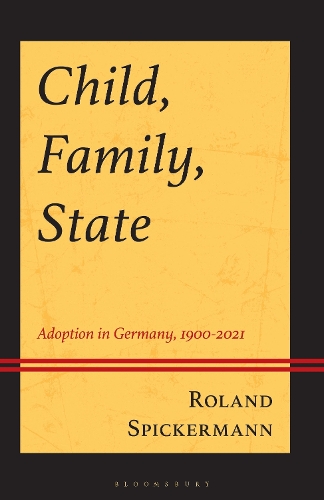
Child, Family, State: Adoption in Germany, 1900-2021
(Hardback)
Publishing Details
Child, Family, State: Adoption in Germany, 1900-2021
By (Author) Roland Spickermann
Bloomsbury Publishing PLC
Rowman & Littlefield Publishers
4th September 2025
United States
Classifications
Professional and Scholarly
Non Fiction
Physical Properties
Hardback
324
Width 152mm, Height 229mm
Description
This book explores how adoption evolved in Germanys turbulent twentieth century, experiencing both drastic changes and unexpected continuities.
The history of adoption in twentieth-century Germany has been dramatic and complex. The Weimar Republics assumption of responsibility for childrens welfare in 1922 empowered state authorities to regulate private adoption agencies, to set up their own public adoption offices, and to require prospective adoptive parents to prove their competence to social workers. These policies subsequently allowed nazis, communists, and democrats to frame adoption policies to match their social and political goals and values. Differing conceptions of the best interests of the child and the family, redefinitions of family, changing criteria for a familys or childs suitability for adoption, abduction, international adoption, and even European integration all came into play, empowering authorities to define, regulate and sometimes even forbid adoptive relationships to that end. The evolution of German adoption and German society reflected each other, showing both fundamental changes and unexpected continuities, and deepening our understanding of both.
Reviews
In Child, Family, State, Roland Spickermann traces the evolution and politicization of adoption in Germany over the 19th and 20th centuries. From adult adoption intended to preserve a familys lineage, through the use of adoption to preserve the purity of the race, to adoption as the means of best ensuring proper care for a parentless child, that evolution was complex and convoluted .Through five different regimes, Spickermann masterfully explores how the state became increasingly involved in the process of adoption, and how the notions of adoption, family, and an adopted childs place in a family changed over time with important implications for both the adopted child and the adoptive family. * Lynne Taylor, Associate Professor, University of Waterloo, Canada *
Author Bio
Roland Spickermann is Associate Professor of History at the University of Texas - Permian Basin.
